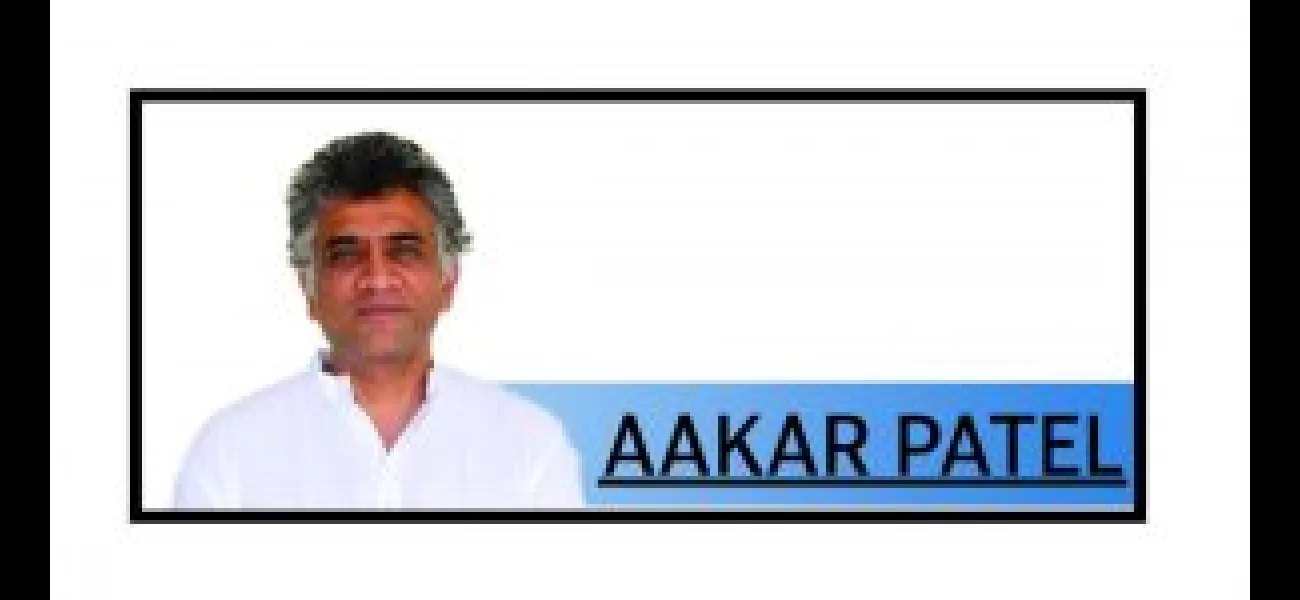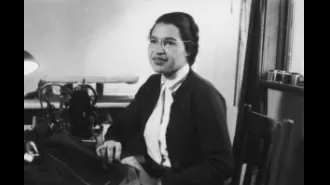What is the future of human rights?
On May 13, a headline reported that the UN has postponed accrediting NHRC-India for the second consecutive year, potentially impacting India's voting power at the Human Rights Council and UNGA.
May 19th 2024.

A headline on 13 May this year caught the attention of many, reading: "UNlinked body defers NHRC-India accreditation for second year in a row." It was accompanied by another line stating, "The decision could now affect India's ability to vote at the Human Rights Council and some UNGA bodies."
For those unfamiliar, NHRC stands for the National Human Rights Commission and this column is dedicated to discussing why its accreditation was deferred. Last year, on 9 March, a coalition of non-governmental organizations wrote a letter to the Global Alliance of National Human Rights Institutions, the UN-linked body. The letter urged a review of India's accreditation status, citing concerns over the NHRC's lack of independence, diversity, and accountability, which goes against the principles of the United Nations regarding national institutions.
After receiving our letter and other submissions from civil society, the global body decided to defer NHRC's re-accreditation for 12 months. This was due to the commission's failure to effectively fulfill its responsibilities in addressing the growing number of human rights violations in India. The NHRC was also advised to improve its processes and functions, but a year had gone by and no significant changes had been made. This led to the second deferral of accreditation.
So what exactly went against the Paris Principles? First and foremost, there was a clear lack of independence. This was evident in both the selection process of NHRC's officials and their functioning. The chairperson and other members of the commission are appointed by the President based on the recommendation of a committee consisting of the Prime Minister, the Speaker of the Lok Sabha, Minister of Home Affairs, Leader of the Opposition in the Lok Sabha and Rajya Sabha, and the Deputy Chairperson of the Rajya Sabha. However, since 2019, the position of the Opposition leader in the Lok Sabha has remained vacant, leaving only a single voice from the opposition in the selection committee.
Despite strong disagreement from the lone Opposition voice in the selection committee, Arun Mishra was appointed as chair on 31 May 2021, after his retirement from the Supreme Court. Another issue was that the NHRC relies on police officers to investigate human rights violations by the state, including those committed by the police themselves. This is a clear conflict of interest and goes against the idea of independence from government interference. Although this was pointed out during the 2023 review, the Modi government did not take any steps to address this or initiate a consultation to begin the process.
In November 2023, seven former IPS officers were appointed by the NHRC as special monitors. One of them, who had been accused of corruption in 2018 while working as the Special Director of CBI, India's federal investigation agency, was given the responsibility to oversee the thematic areas of terrorism, counterinsurgency, communal riots, and violence. Another former director of the National Intelligence Bureau was also made a member of the commission.
The lack of diversity in the NHRC was another concern that had been repeatedly raised to India. The commission was urged to ensure a "pluralistic balance in its composition and staff" by representing the diverse society of India, which includes religious and ethnic minorities. However, this was not taken seriously in a country where the prime minister often speaks out against minorities, even in his election speeches.
Another issue that was highlighted was the NHRC's lack of engagement with civil society and human rights defenders in India. The commission was advised to interpret its mandate in a broader and more progressive manner and to address all human rights violations and consistently follow up with state authorities. This may come as a surprise to those who have been influenced by the government's narrative that anyone opposing their actions is an "anti-national." However, it is crucial for a proper democracy to engage with civil society.
In India, human rights defenders are often detained for years without trial under harsh laws like the UAPA, with no response from the NHRC. This includes individuals detained in connection with the Bhima Koregaon-Elgar Parishad case for over five years, Kashmiri human rights defender Khurram Parvez, who has been in detention since November 2021, and Umar Khalid. Despite several UN special rapporteurs calling on Indian authorities to release these individuals, the NHRC has not taken any concrete steps or intervened in a timely manner. The commission has also failed to address major incidents like the situation in Manipur, Jammu and Kashmir, communal violence in Haryana and Uttarakhand, and other issues that have made headlines. This has not reflected well on the commission and the government, and their current predicament is a result of their own actions.
Currently, India holds an A rating, but the deferral of re-accreditation puts this rating at risk. This also means that the NHRC could lose its voting position in the United Nations Human Rights Council and other bodies. The only way to rectify this is by doing the right thing, which the government is fully capable of doing.
All of us, including the signatories of the letter, want to see India receive the highest level of accreditation in the global body. However, it should be an honest accreditation, reflecting a strong and independent human rights body in India that is committed to addressing state-sponsored human rights violations. It should not be an automatic right given to a self-proclaimed "mother of democracy."
For those unfamiliar, NHRC stands for the National Human Rights Commission and this column is dedicated to discussing why its accreditation was deferred. Last year, on 9 March, a coalition of non-governmental organizations wrote a letter to the Global Alliance of National Human Rights Institutions, the UN-linked body. The letter urged a review of India's accreditation status, citing concerns over the NHRC's lack of independence, diversity, and accountability, which goes against the principles of the United Nations regarding national institutions.
After receiving our letter and other submissions from civil society, the global body decided to defer NHRC's re-accreditation for 12 months. This was due to the commission's failure to effectively fulfill its responsibilities in addressing the growing number of human rights violations in India. The NHRC was also advised to improve its processes and functions, but a year had gone by and no significant changes had been made. This led to the second deferral of accreditation.
So what exactly went against the Paris Principles? First and foremost, there was a clear lack of independence. This was evident in both the selection process of NHRC's officials and their functioning. The chairperson and other members of the commission are appointed by the President based on the recommendation of a committee consisting of the Prime Minister, the Speaker of the Lok Sabha, Minister of Home Affairs, Leader of the Opposition in the Lok Sabha and Rajya Sabha, and the Deputy Chairperson of the Rajya Sabha. However, since 2019, the position of the Opposition leader in the Lok Sabha has remained vacant, leaving only a single voice from the opposition in the selection committee.
Despite strong disagreement from the lone Opposition voice in the selection committee, Arun Mishra was appointed as chair on 31 May 2021, after his retirement from the Supreme Court. Another issue was that the NHRC relies on police officers to investigate human rights violations by the state, including those committed by the police themselves. This is a clear conflict of interest and goes against the idea of independence from government interference. Although this was pointed out during the 2023 review, the Modi government did not take any steps to address this or initiate a consultation to begin the process.
In November 2023, seven former IPS officers were appointed by the NHRC as special monitors. One of them, who had been accused of corruption in 2018 while working as the Special Director of CBI, India's federal investigation agency, was given the responsibility to oversee the thematic areas of terrorism, counterinsurgency, communal riots, and violence. Another former director of the National Intelligence Bureau was also made a member of the commission.
The lack of diversity in the NHRC was another concern that had been repeatedly raised to India. The commission was urged to ensure a "pluralistic balance in its composition and staff" by representing the diverse society of India, which includes religious and ethnic minorities. However, this was not taken seriously in a country where the prime minister often speaks out against minorities, even in his election speeches.
Another issue that was highlighted was the NHRC's lack of engagement with civil society and human rights defenders in India. The commission was advised to interpret its mandate in a broader and more progressive manner and to address all human rights violations and consistently follow up with state authorities. This may come as a surprise to those who have been influenced by the government's narrative that anyone opposing their actions is an "anti-national." However, it is crucial for a proper democracy to engage with civil society.
In India, human rights defenders are often detained for years without trial under harsh laws like the UAPA, with no response from the NHRC. This includes individuals detained in connection with the Bhima Koregaon-Elgar Parishad case for over five years, Kashmiri human rights defender Khurram Parvez, who has been in detention since November 2021, and Umar Khalid. Despite several UN special rapporteurs calling on Indian authorities to release these individuals, the NHRC has not taken any concrete steps or intervened in a timely manner. The commission has also failed to address major incidents like the situation in Manipur, Jammu and Kashmir, communal violence in Haryana and Uttarakhand, and other issues that have made headlines. This has not reflected well on the commission and the government, and their current predicament is a result of their own actions.
Currently, India holds an A rating, but the deferral of re-accreditation puts this rating at risk. This also means that the NHRC could lose its voting position in the United Nations Human Rights Council and other bodies. The only way to rectify this is by doing the right thing, which the government is fully capable of doing.
All of us, including the signatories of the letter, want to see India receive the highest level of accreditation in the global body. However, it should be an honest accreditation, reflecting a strong and independent human rights body in India that is committed to addressing state-sponsored human rights violations. It should not be an automatic right given to a self-proclaimed "mother of democracy."
[This article has been trending online recently and has been generated with AI. Your feed is customized.]
[Generative AI is experimental.]
0
0
Submit Comment





